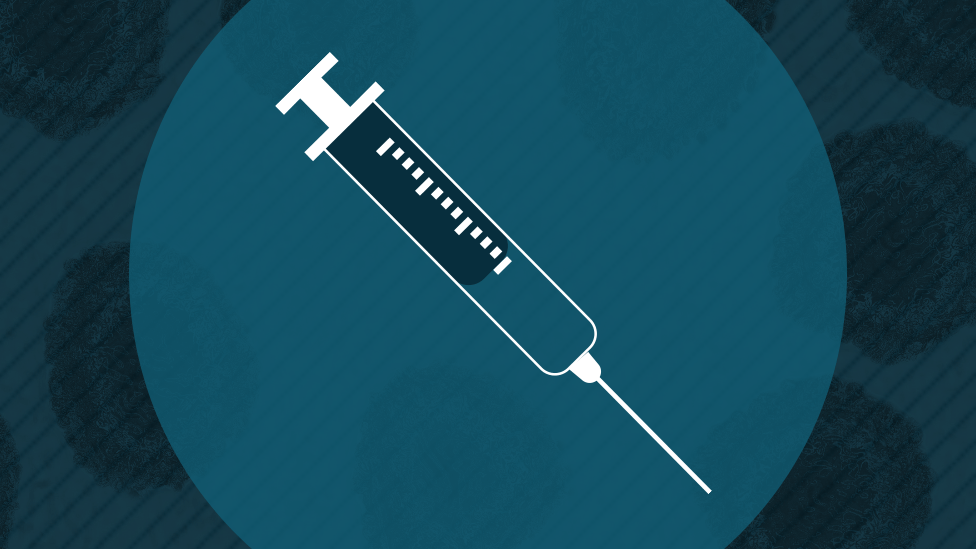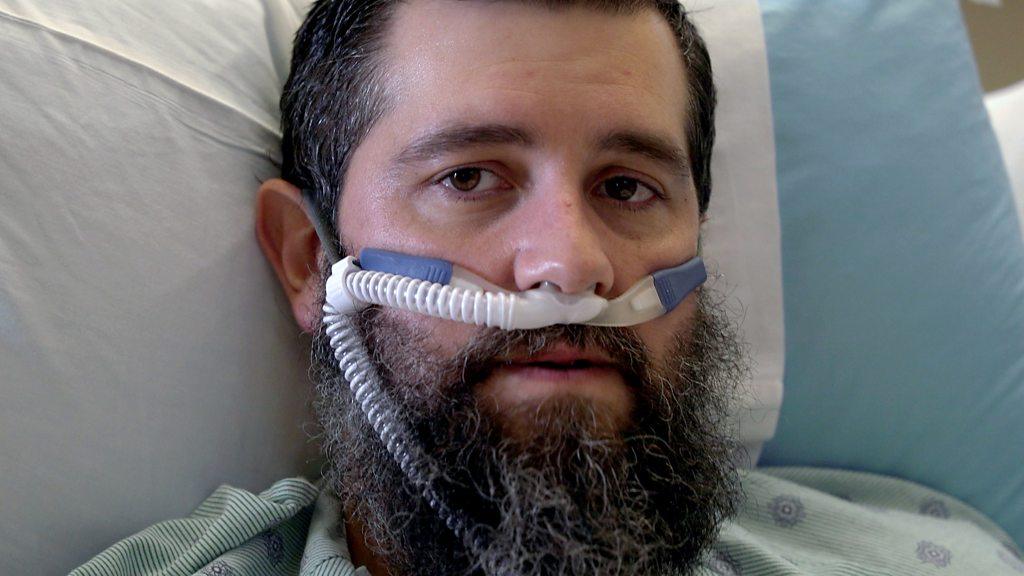Pfizer becomes first Covid vaccine to gain full FDA approval
- Published

Pfizer's two-dose Covid-19 vaccine has received full approval from the US Food and Drug Administration (FDA) - the first jab to be licensed in the nation.
The vaccine had initially been given emergency use authorisation. Its two jabs, three weeks apart, are now fully approved for those aged 16 and older.
The approval is expected to set off more vaccine mandates by employers and organisations across the country.
It comes amid lingering vaccine hesitancy among many Americans.
In a statement, the FDA said its review for approval included data from approximately 44,000 people. The vaccine, which will now be marketed as Comirnaty, was found to be 91% effective in preventing Covid disease.
Acting FDA commissioner Janet Woodcock said that the public "can be very confident" the vaccine meets high safety, effectiveness and manufacturing quality standards.
It still has emergency use authorisation for children aged 12 to 15.
Following the announcement, the US military said they would officially require all 1.3m active duty US troops to get vaccinated.
The jabs are being provided at no cost to Americans.
The FDA initially gave Pfizer temporary authorisation - a clearance given if the agency determines the benefits of a product outweigh potential risks during a public health emergency.
This full approval is essentially permanent. The licensing process requires companies to provide the FDA with information on how and where the product is made, as well as other clinical testing data.
Critics had been calling on the FDA to speed up this approval process as the nation struggled with dropping vaccination rates earlier this year. The spread of the contagious Delta variant has already given some hard-hit regions a bump in vaccination rates in recent weeks.

Do Americans think this will change minds?
Folks who don't want the vaccine are going to convince themselves not to get it one way or another, which is why the Biden administration has to be as consistent as possible with their mandates and information. - Greg Samuel, 33, Washington DC
Maybe 50% of people who haven't been vaccinated have said they'd prefer an FDA approval. So with the approval, what's the excuse? I'm hopeful the seal of approval will give them confidence. I'm optimistic, but I don't think it's going to change too much. - Dr Mireya Wessolossky, 58, Massachusetts
I would still like to see how it affects people in the next few years before getting vaccinated. This vaccine has only been out for less than a year. - Jenson Bland, 21, Georgia
Read more on this issue: US doctors ask if race to stop Covid 'lost'

While the agency took steps to increase staff and resources, it had previously said it would take six months to get the required data.
The approval ultimately came less than four months after Pfizer-BioNTech filed for licensing in early May - the fastest vaccine approval in the FDA's more than 100 year history.
Polling data released at the end of June by the Kaiser Family Foundation found that about 30% of unvaccinated American results said they would be more likely to get a vaccine if it received full FDA approval. The number rises to nearly 50% among Americans taking a "wait and see" approach to vaccines.
In a televised address on Monday, President Biden spoke directly to the "millions" of Americans he said were waiting for full and final FDA approval.
"The moment you've been waiting for is here," he said. "It's time for you to go get your vaccination. Get it today."
Additionally, Mr Biden called on private sector companies and nonprofits to require employees to get vaccinated or "face strict requirements".
Companies, healthcare systems, universities and other organisations are now expected to announce vaccine requirements as the country embarks on a return to normalcy.
To date, more than 92 million vaccinated Americans - more than half of the total - have received the Pfizer vaccine.
Are America's unvaccinated changing their minds?
- Published28 May 2021

- Published30 July 2021

- Published29 July 2021
